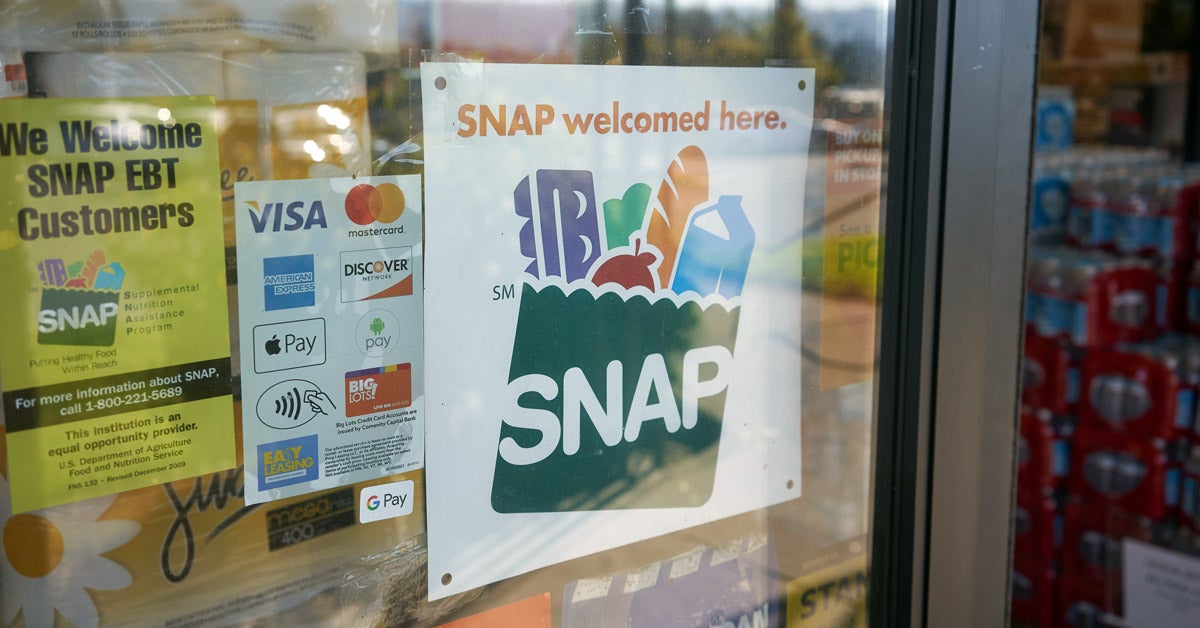Newsletter
HPH Weekly: SNAP helps Americans eat. But can it help them eat better?
This edition of Harvard Public Health Weekly was sent to our subscribers on August 29, 2024. If you don’t already receive the newsletter, subscribe here. To see more past newsletters, visit our archives.
SNAP helps Americans eat. But can it help them eat better?

Sixty years ago this week, President Lyndon Johnson signed the Food Stamp Act of 1964 into law. The program has been largely successful in its goals to reduce food insecurity and poverty. It has been less successful, however, at getting nutritious food to the people who rely on it, with studies suggesting SNAP recipients are less healthy than people not using the program. Researchers continue to look for ways to fix that.
As food stamps turn 60, four reasons to celebrate

Last year, Northeastern University public policy professor Christopher Bosso published Why SNAP Works: A Political History—and Defense—of the Food Stamp Program. It should come as no surprise that the author of a book with that title sees many big reasons to celebrate the program on its 60th anniversary. In an op-ed, Bosso offers four—along with two ways SNAP could improve.
As drinking habits shift, global alcohol industry fights to stay ahead

As Americans begin to challenge the value of alcohol in adult life, and experts scrutinize its impact on health, the industry is doing everything it can to stay relevant. In pursuit of new profit centers, it’s now marketing to demographics it has historically underserved, including women, and looking to new markets in the Global South, where there are conveniently few regulations on the sale of alcoholic beverages.
This story was reported by The Examination, a nonprofit newsroom that investigates global health threats. Sign up to get The Examination’s newsletter in your inbox.
Snapshot
Gratitude could help smokers stop craving cigarettes →
What we’re reading this week
Gen Z is drinking less than ever →
Forbes
Why mpox vaccines aren’t flowing to Africans in desperate need →
The New York Times
How climate migration will remake America →
Think Global Health
The rape and murder of a female doctor in India sets off an outcry over women’s safety →
NPR
- Related: A place for Indian women to do… nothing →
Harvard Public Health
Antibiotics are failing. The U.S. has a plan to launch a research renaissance. →
Vox
- Related: A new model could change the game on antimicrobial resistance →
Harvard Public Health
